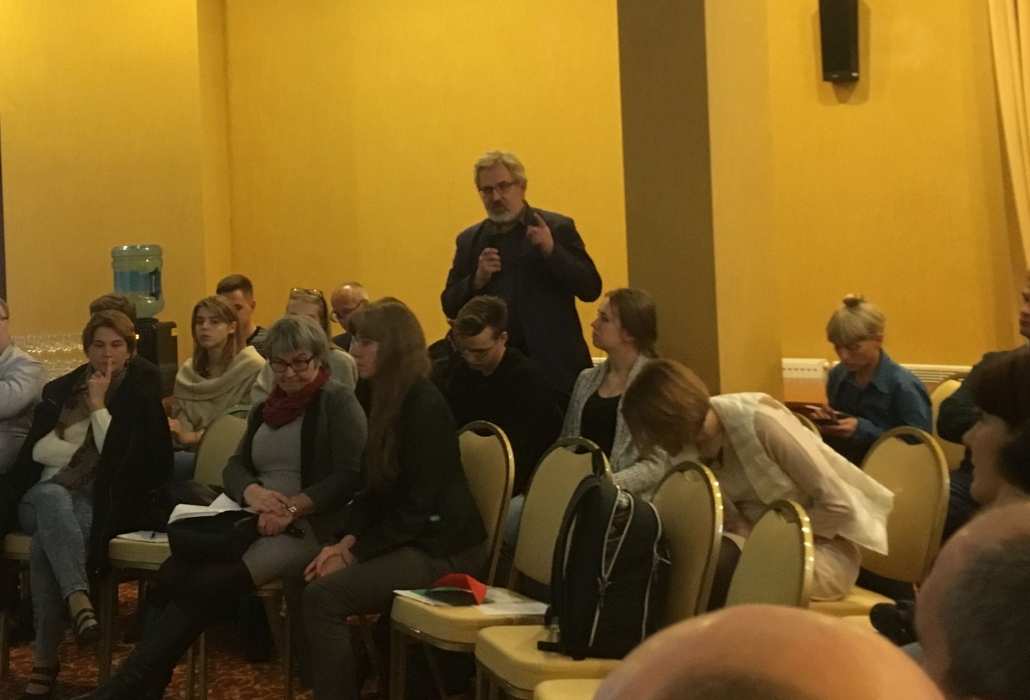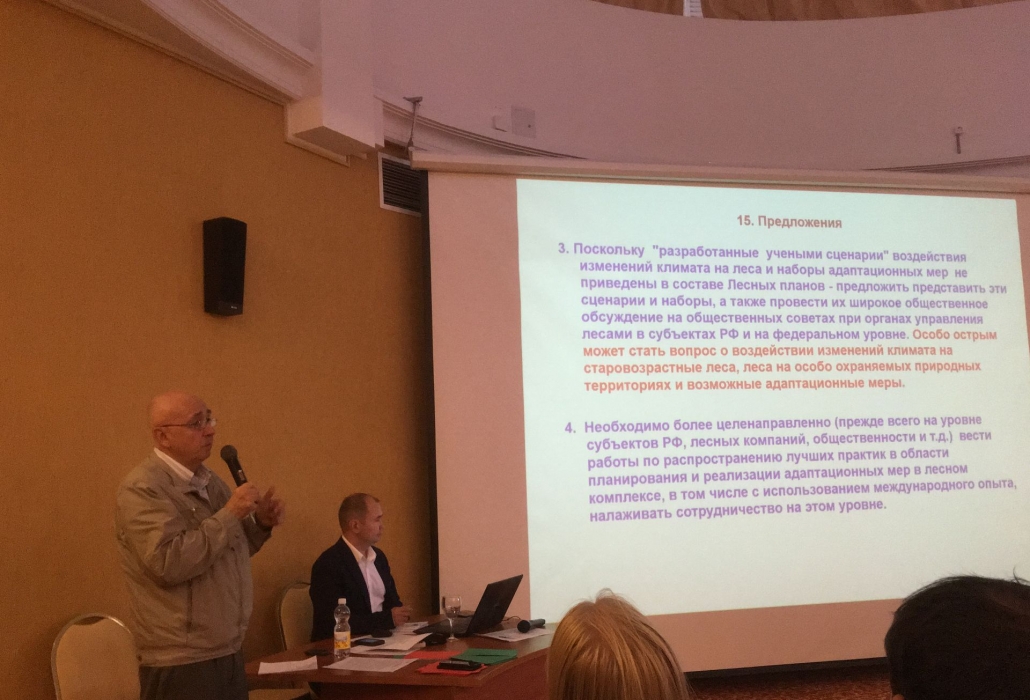TIMBER COMPANIES SHOULD BE READY TO GLOBAL CLIMATE CHANGE CHALLENGES
This issue was discussed during the workshop «Evaluation of the possible climate change impact on forest and forestry in the North-West of Russia», held on October 4, 2018 in Pertozavodsk. About 40 specialists from scientific institutions, forest companies, government agencies, NGOs of the North-West of Russia, Finland and Sweden visited the workshop. Silver Taiga representatives Yury Pautov and Alexander Borovlev participated in the forum as well.
The aim of the workshop was to present the results of the joint investigations of Finnish, Sweden and Karelian scientists about nowadays climate change in Fennoscandia, the possible climate change models for the nearest 50 years and its consequences for the forest, forestry and forest industry as a whole in Barents region. The given workshop is interesting for Silver Taiga as the foundation is going to start a new project on estimation of carbon absorption by the forest ecosystems in different forestry development models in Komi Republic and in connection with climate change.
According to Yury Pautov the beginning of the workshop was very demonstrative when Kheli Peltola from Eastern Finland University proposed to answer the following questions: «Do you think that the climate is already changing?», «Do such changes influence the forest ecosystems and the forestry?», «Is it necessary to develop measures aimed at adaptation of forestry to the current and future climate changes right now?». The audience answered «Yes» unanimously all these questions.
All the reporters of the workshop noted that climate change has already influenced the forest use and regeneration. In particular, the snow breaks during winter time happen more often and it causes problems with the roads and river crossing in the northern regions. Late snow cover and poor soil freezing result in winter loggings limitations. All these problems are typical for Komi Republic and the North-West of Russia as well because up to 70% of wood is cut during winter time there.
Other problems that can appear because of climate change are destructive insects and forest diseases. According to Olli-Pekka Tikkanen from Eastern Finland University the number of eight-toothed bark beetles has increased in South and Middle Finland and it was decided to cut the wilted fir trees. The same situation was in Moscow area in 2010-2015 and in the adjacent northern continent. In Canada, for example, because of the bark beetles outbreak almost all shore pine forests (Pinus contorta) have disappeared. Not only forests suffer from climate change. Dieback of forest damage everything from food chains to the local economics. The scientists from Finland believe that it is necessary to take into consideration more stable forests including birch and wind-resistant pine trees during forest regeneration.
«Everything mentioned above proves that it is necessary to develop measures aimed at adaptation of forestry to the climate changes already now and different possible scenarios should be taken into account», – says Yury Pautov. «In particular, the forestry specialists in Sweden are cooperating already with the private forest users by convincing them to change the ways of forest management for adaptation to future negative climatic changes such as windfalls, fires, destructive insects. In Russia the main forest owner is the state and there are no completed programs on adaptation to climatic changes yet, they are in the process». According to Yury Pautov large timber companies are at risk above all others in this situation as they make serious investments into wood processing. New timber mills follow the current extensive forestry model — «cut and forget» and so they can have not enough forest resources for nonstop production.




